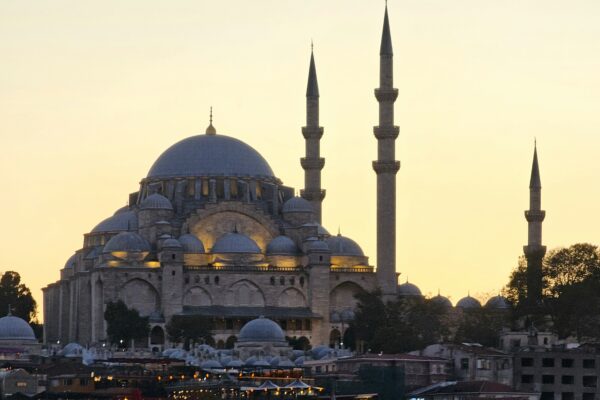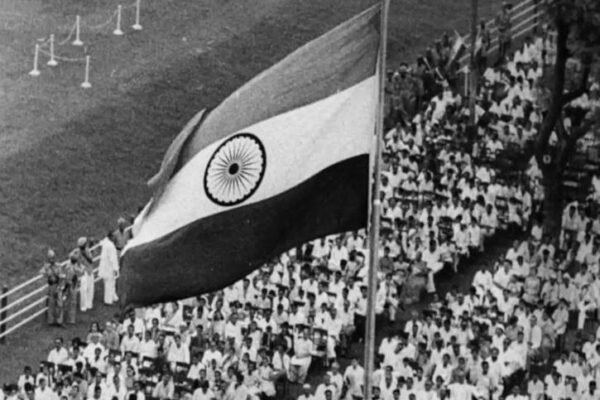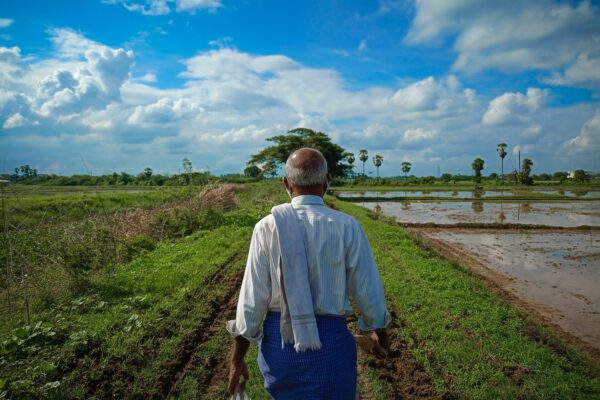For the first time in independent India’s history, the government has introduced a religion clause to the country’s naturalization process. Citizenship will be granted to people fleeing persecution from neighboring countries, but only if they are Hindu, Sikh, Jain, Buddhist, Christian or Parsi (Zoroastrian). Muslims are not eligible under this new act.
For the first time in independent India’s history, the government has introduced a religion clause to the country’s naturalization process. Citizenship will be granted to people fleeing persecution from neighboring countries, but only if they are Hindu, Sikh, Jain, Buddhist, Christian or Parsi (Zoroastrian). Muslims are not eligible under this new act.
“Darr to lag raha hai, magar darr ke aagey jeet hai.” (I feel a bit of fear, but beyond the fear I see victory.) My friend Aisha* hastily typed this on our WhatsApp group before leaving her house last week to join a rally protesting the new Citizenship Amendment Act (CAA) in Mumbai, India. Aisha has lived most of her life in Mumbai in a diverse, multicultural neighborhood. She is a physician by profession and a humanitarian by heart.
“I have a lot of friends from all faiths, but never have I felt this sense of isolation in all my life,” she told me. Suddenly, she feels that there is a question mark on her citizenship. “My passport says I am a citizen of India [from] as long as I can remember. My voter ID, Aadhar card, driver’s license all have the same information. But now I have to prove it all over again.”
“I come from a privileged background,” Aisha says. “I can probably provide all the proofs but what about those millions who don’t have the required documents?” Under the proposed new law, she explains “a government official will go from door to door asking for these proofs of citizenship, if you are unable to provide them or there is an error in your documents the official can put a D against your name — Doubtful Citizen.” She worries that after that happens, all bets will be off and the burden of proof will be on the accused.
I have fond memories of growing up in India. We lived in Hyderabad, a city in south-central India with a sizeable Muslim population. Some of my best friends were Hindu and Christian. Most our afternoons were spent playing galli (street) cricket with neighborhood friends. We jumped from terrace to terrace flying kites on Makar Sankranti (Celebration of the harvest, Festival of Kites).
I spent every Diwali (Festival of Lights) at my friend Maruth’s house lighting up firecrackers and chomping down mithai (Indian sweets) till our stomachs hurt. “Ek aur kha lo, beta,” (Have one more, son) his mom would say. I visited my dear friend John every Christmas, and we exchanged gifts. My Hindu and Christian friends came over to my house for sheer khorma (Indian vermicelli pudding) on Eid, and they got eidi (cash gift) from my parents. They called my mom Ammi, just like I did.
These Indian values of inclusion, tolerance, acceptance and love have severely eroded over the past few years. In December 2019, India’s parliament passed the Citizenship Amendment Act (CAA,) granting a pathway to citizenship for minorities fleeing religious persecution from neighboring countries, namely Pakistan, Bangladesh and Afghanistan. I am glad that minorities facing persecution are being given a safe haven in India. On the surface this looks like a very noble and magnanimous gesture by Indian government, and they are trying their best to portray it as such. But the true sinister nature of the CAA is revealed not by its inclusivity, but by whom it specifically excludes.
For the first time in independent India’s history, the government has introduced a religion clause to the country’s naturalization process. Citizenship will be granted to people fleeing persecution from neighboring countries, but only if they are Hindu, Sikh, Jain, Buddhist, Christian or Parsi (Zoroastrian). Muslims are not eligible under this new act. This new law is by far the most blatant attack on India’s Constitution. CAA directly contradicts Article 14: “The State shall not deny to any person equality before the law or the equal protection of the laws within the territory of India”, and Article 15: “the State shall not discriminate against any citizen on grounds only of religion, race, caste, sex, place of birth, or any of them.”
The current BJP (Bharatiya Janata Party) government, under Prime Minister Narendra Modi’s direction, has slowly been chipping away at India’s secular and pluralistic identity through divisive policies and actions. And the passage and enforcement of the CAA is by far the most direct and definitive step yet towards their dream of establishing a Hindu rasthra (nation).
There are so many things wrong with the CAA. Why are Muslims excluded from this pathway to citizenship? There are well documented cases of religious persecution against minority sects like Ahmadiyyas, Shias and Hazaras in India’s neighboring countries. The biggest refugee crisis in South Asia right now is that of Rohingya Muslims from Myanmar. Why were they excluded? India shares a vast border with Myanmar. India does not even share a border with Afghanistan. What about Tamil Hindus from Sri Lanka who have faced persecution by the Buddhist majority?
As a result of CAA, nearly two million people in the northeastern state of Assam have become stateless. There are detention centers in Assam where many are being held. Some of them have lived in India all their life but just don’t have the documents to prove it. Muslims and minorities in various parts of India feel marginalized and threatened as a result of this Act. There are plans underway for detention centers in other parts of the country.
The Indian government is giving assurances that Muslims and other minorities living in India will not be affected by this law. However, they are now in the process of implementing the National Registry of Citizens (NRC) and National Population Register (NPR), which in combination with CAA are very discriminatory against Muslims and other minorities, putting them at risk of losing their Indian citizenship.
Over the past several weeks protests and counter protests have erupted across India. People are frustrated and feel betrayed. They are finally speaking up against the government’s failures and their divisive policies. People now realize how the ruling party is using all tactics to distract Indian citizens from things that really matter, like its struggling economy, steadily declining GDP, unemployment, safety and security, freedom of speech and expression, rising inflation, and more.
I am not sure what will be the end result of all these protests and demonstrations, but it is good to finally see common Indians unite for a just cause. I know the BJP has massive support in India and abroad. But BJP supporters need to reexamine what they stand for. I can understand if you support a party for the right reasons as long as you have the courage and integrity to criticize their wrongdoings. However, staunch BJP supporters (Bhakts) see nothing wrong in any of their government’s actions. Even if they see it, they will never admit because of their blind faith and double standards.
In the U.S. there are more than 4.5 million Indian Americas. Most of us speak strongly in favor of freedom of speech and expression, religious freedom, human rights and equality in the U.S. and other parts of the world. However, a vast majority remains silent when it comes to discriminatory laws and persecution of minorities in our home country. It’s almost as if we have two separate moral compasses.
We are bigger than this. As Indian Americans I hope we can all stand for values that both our great nations share; equality, justice, freedom of speech and religion, plurality, inclusion and tolerance.
Respectfully,
A concerned Indian American
This article was originally posted on Caravan Daily.
The author Dr. M. Taruj Ali is a Pulmonologist residing in Richmond, VA. He was born and raised in Hyderabad, India and migrated to the U.S. in 1998. Contact email: mtarujali@gmail.com
*Pseudonym used for fear of retribution





